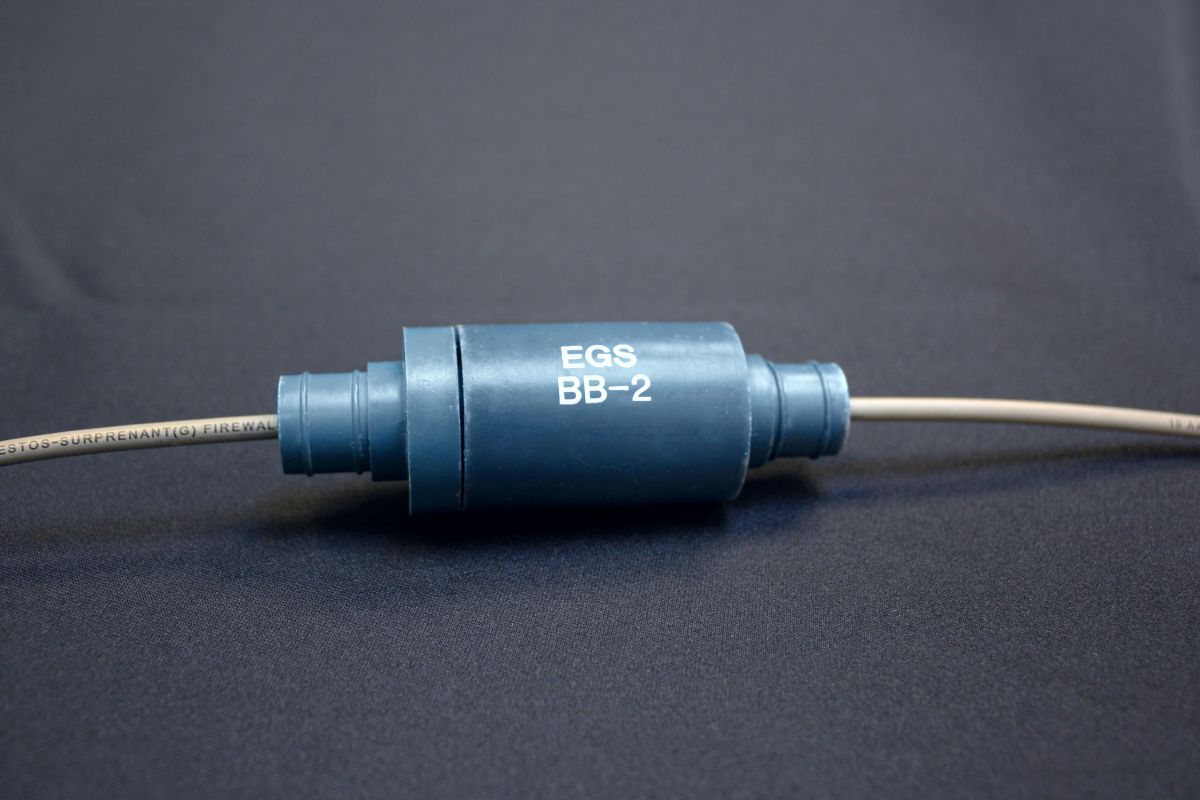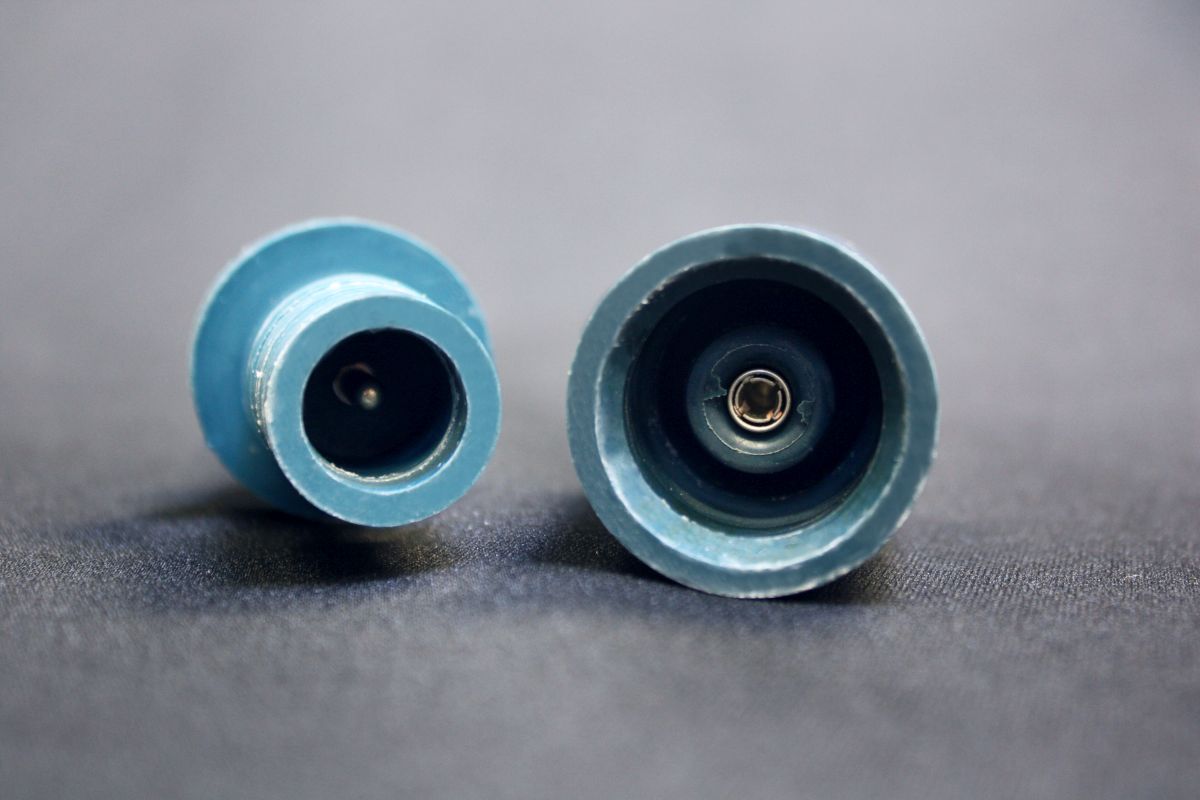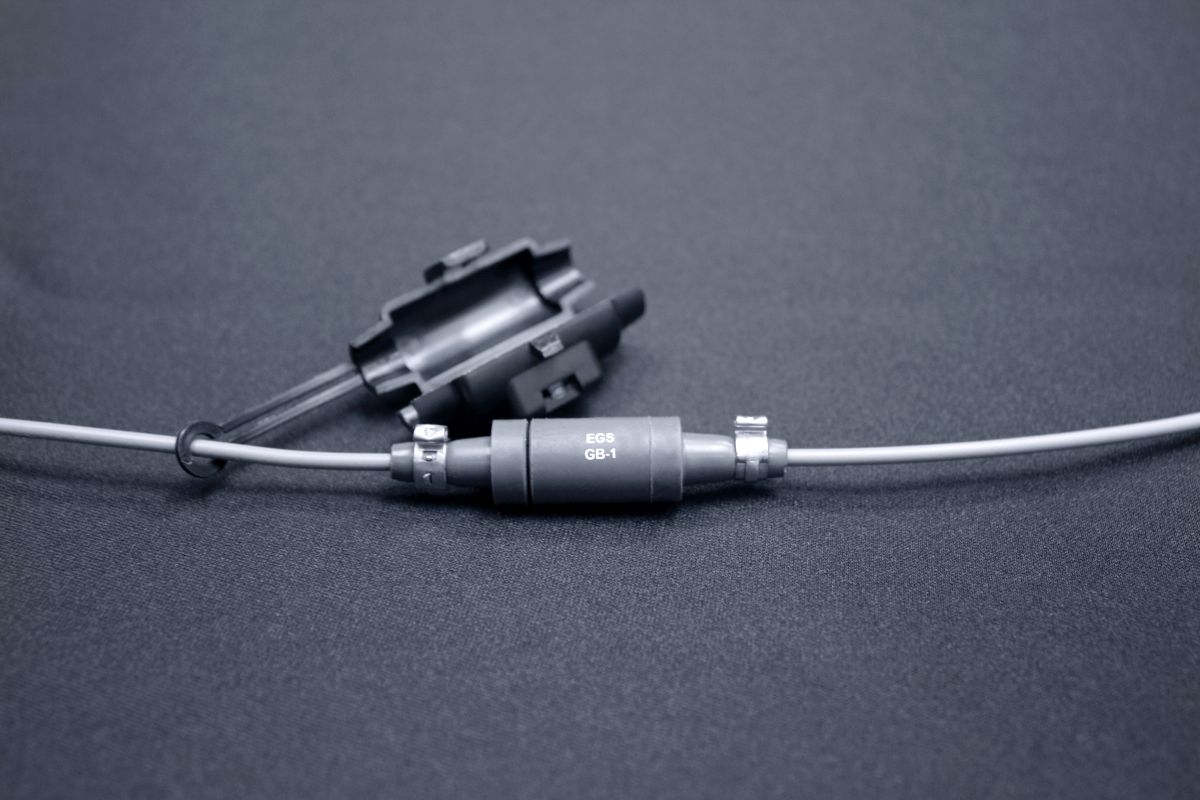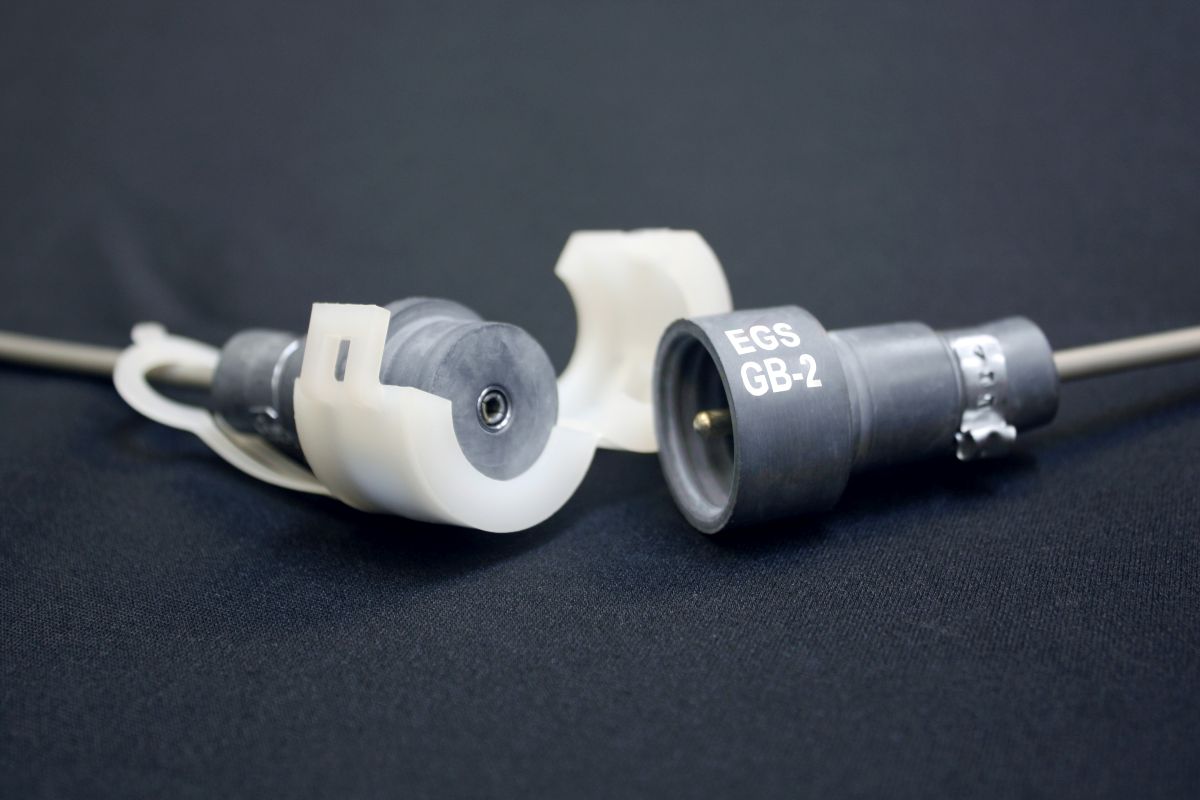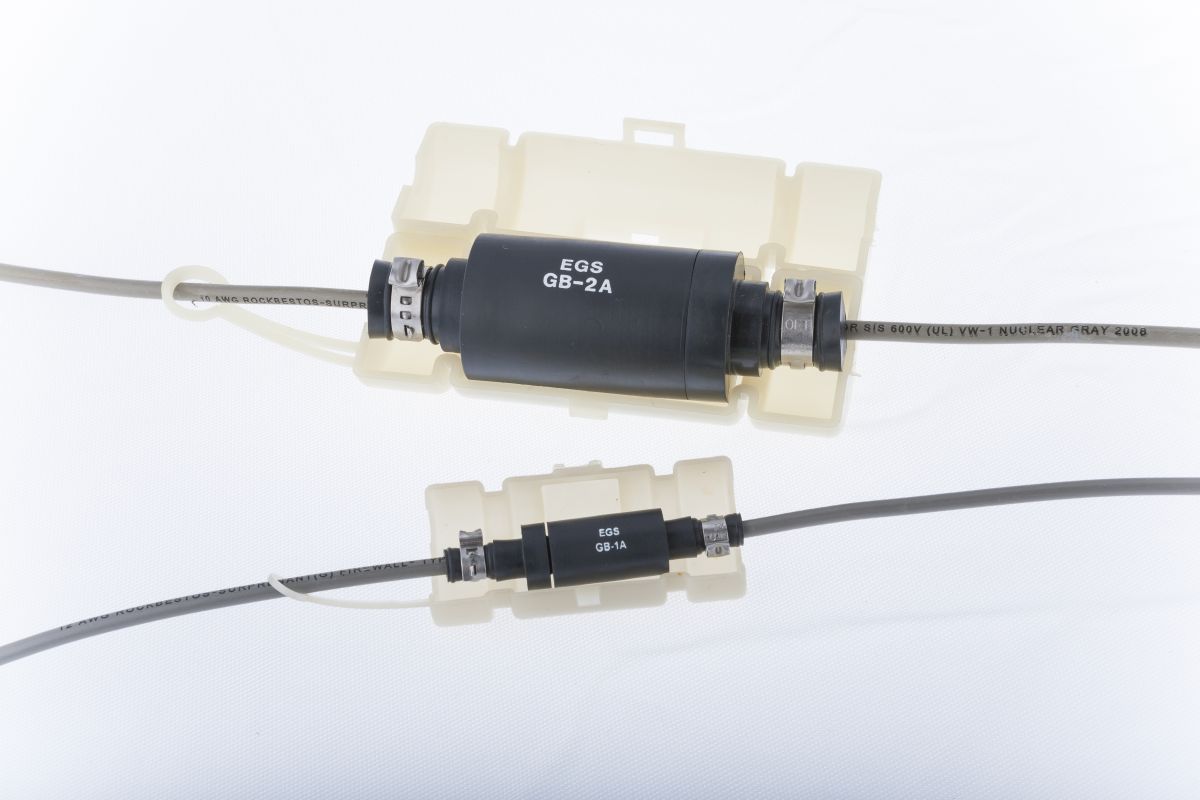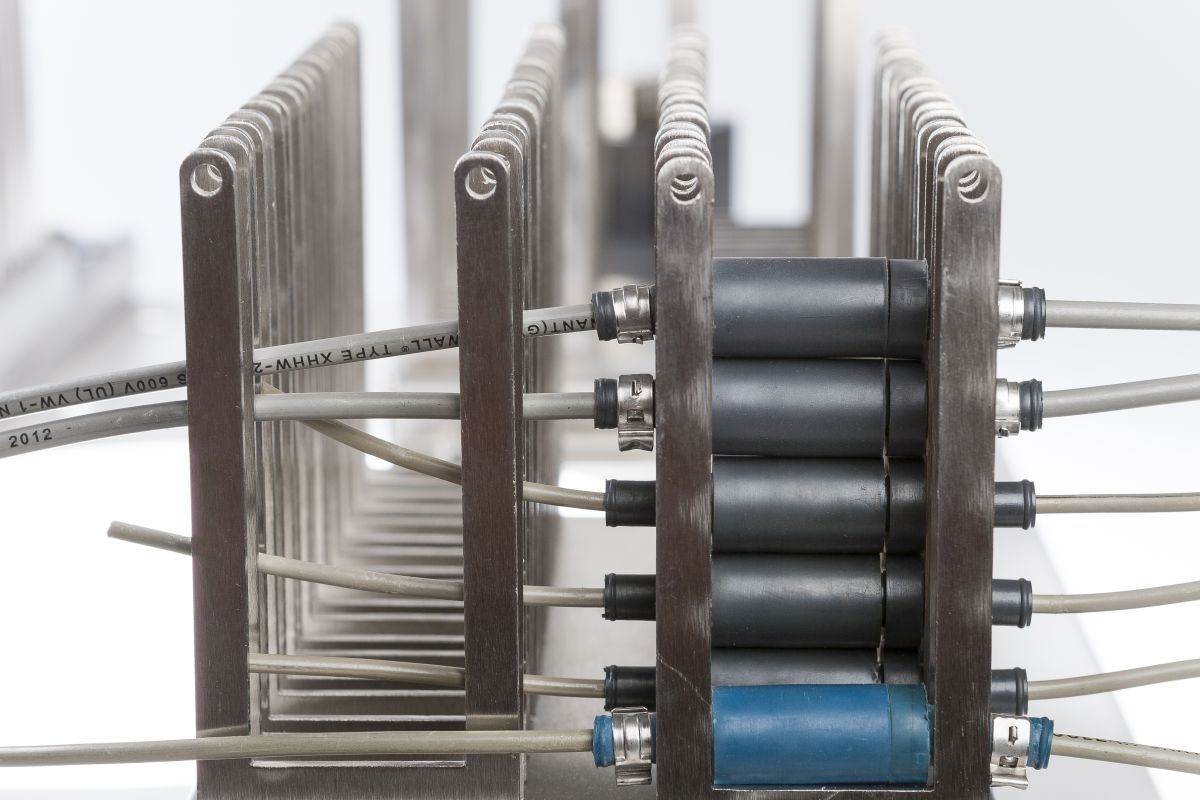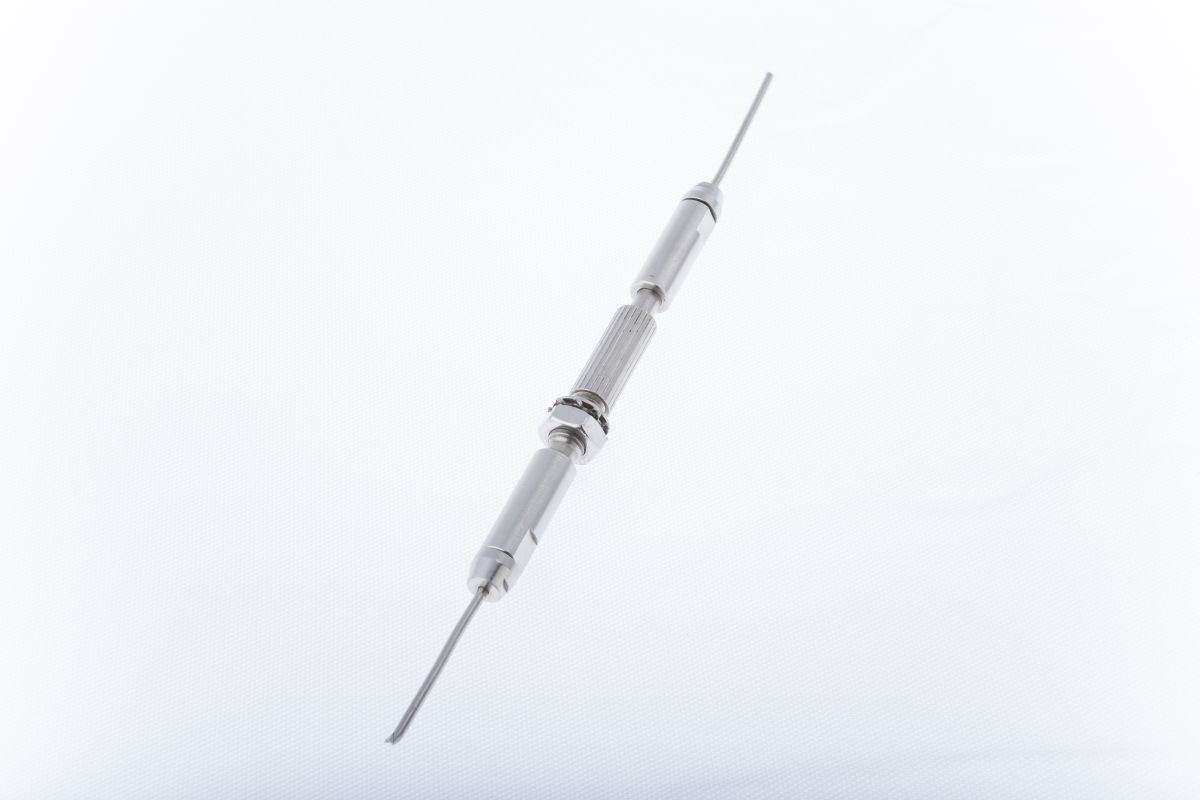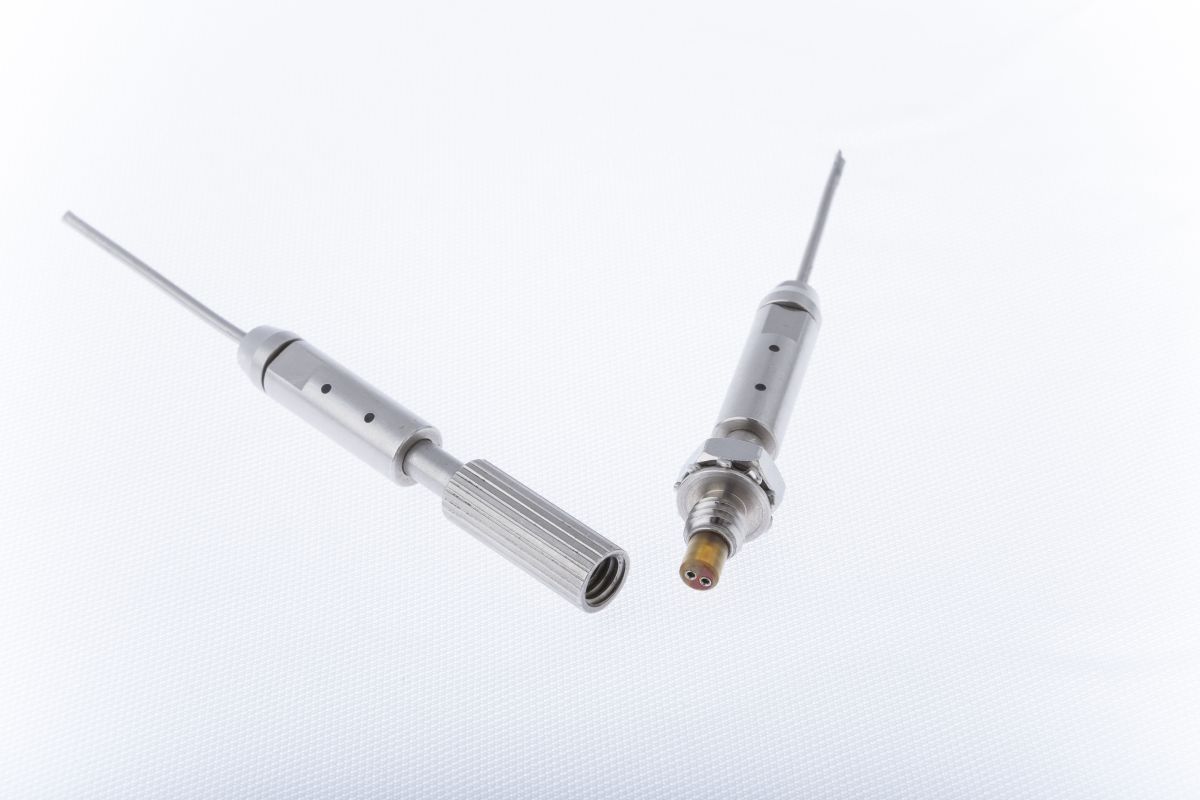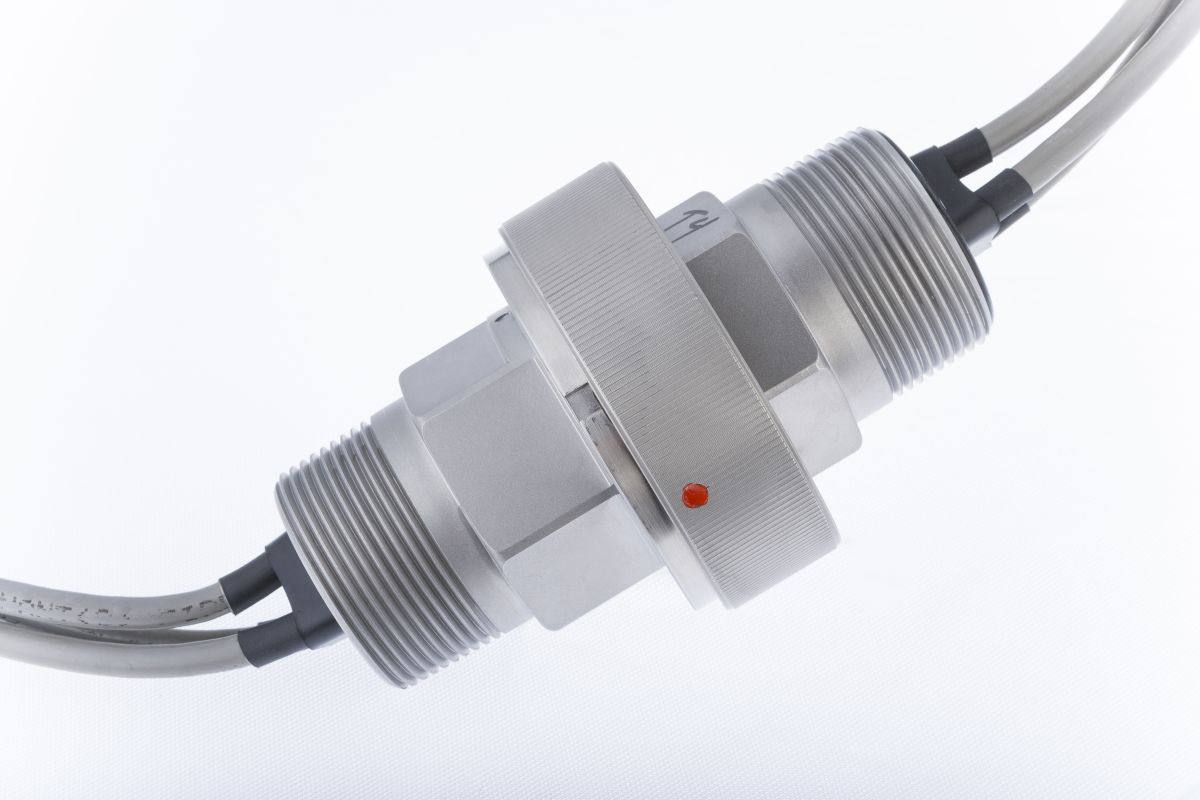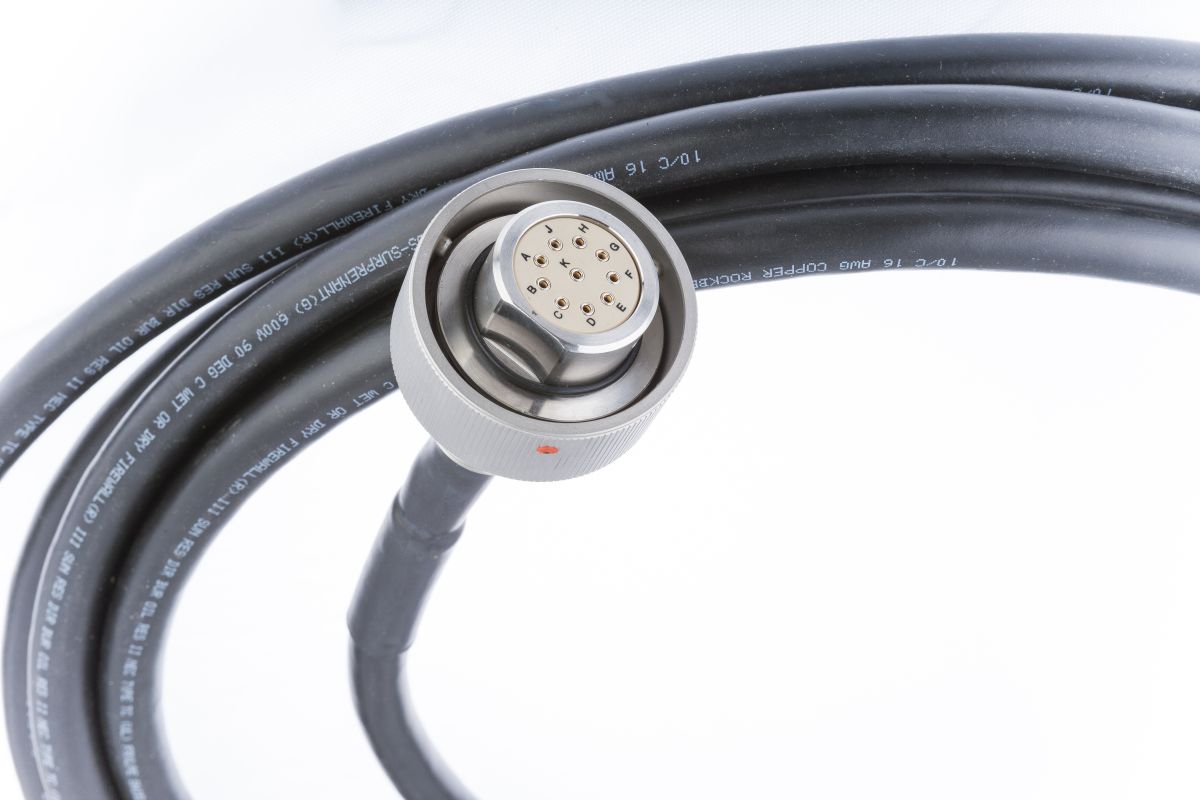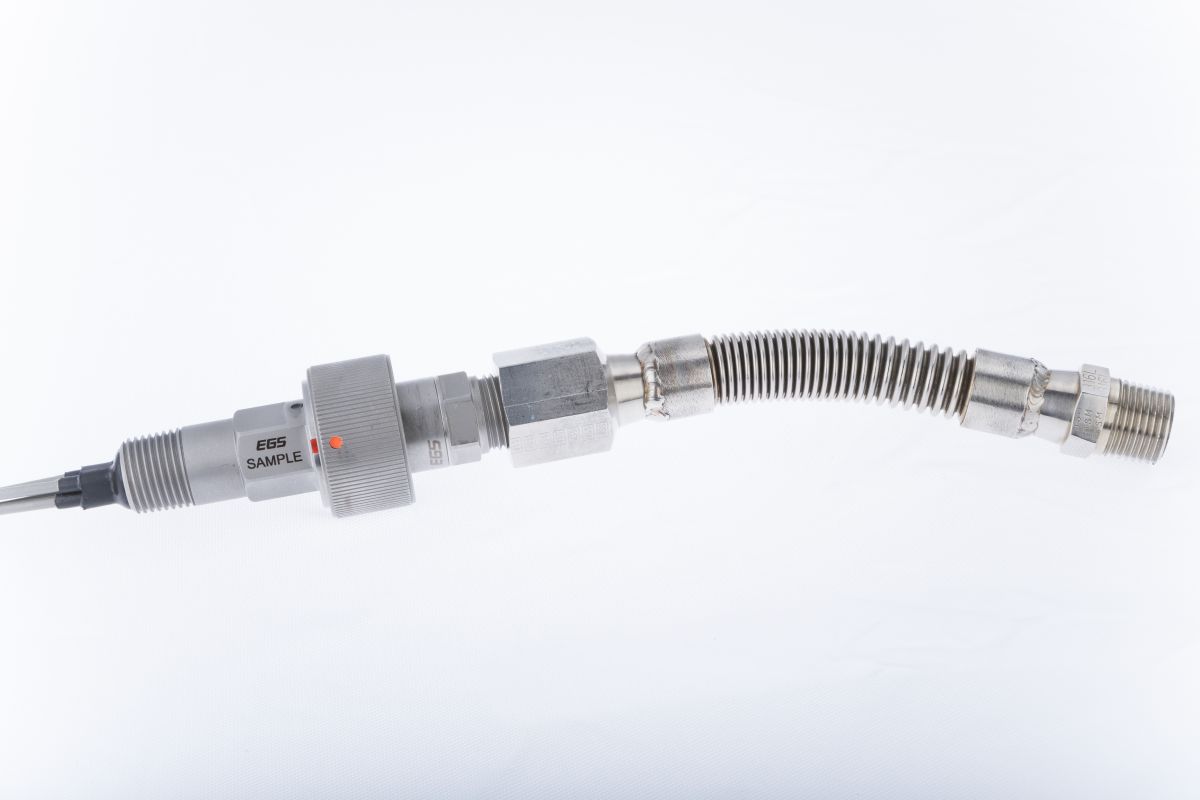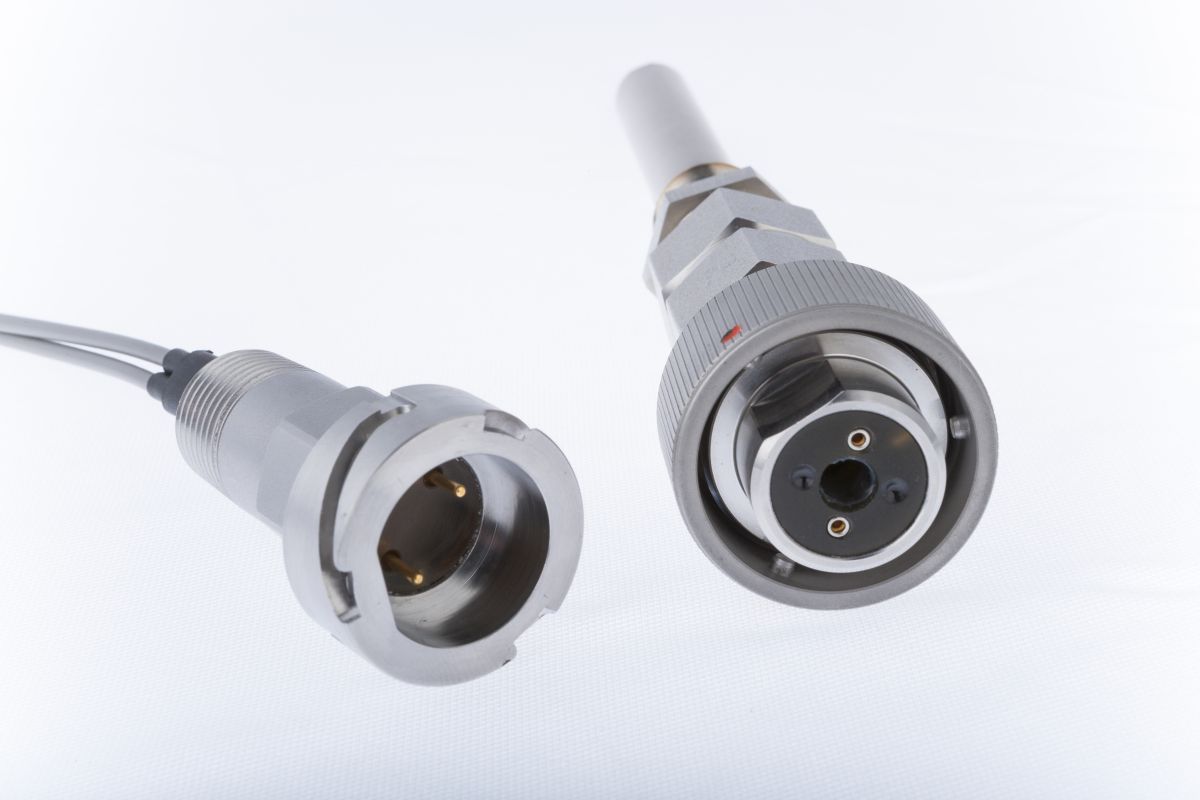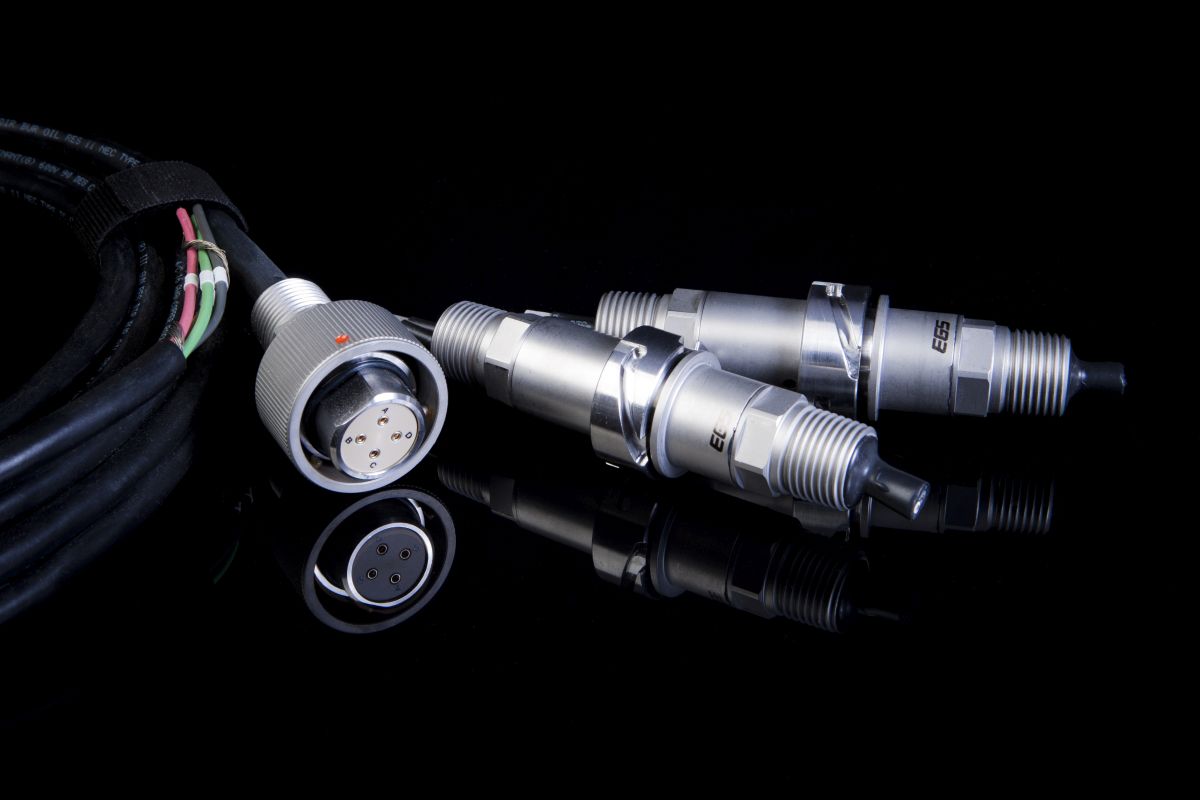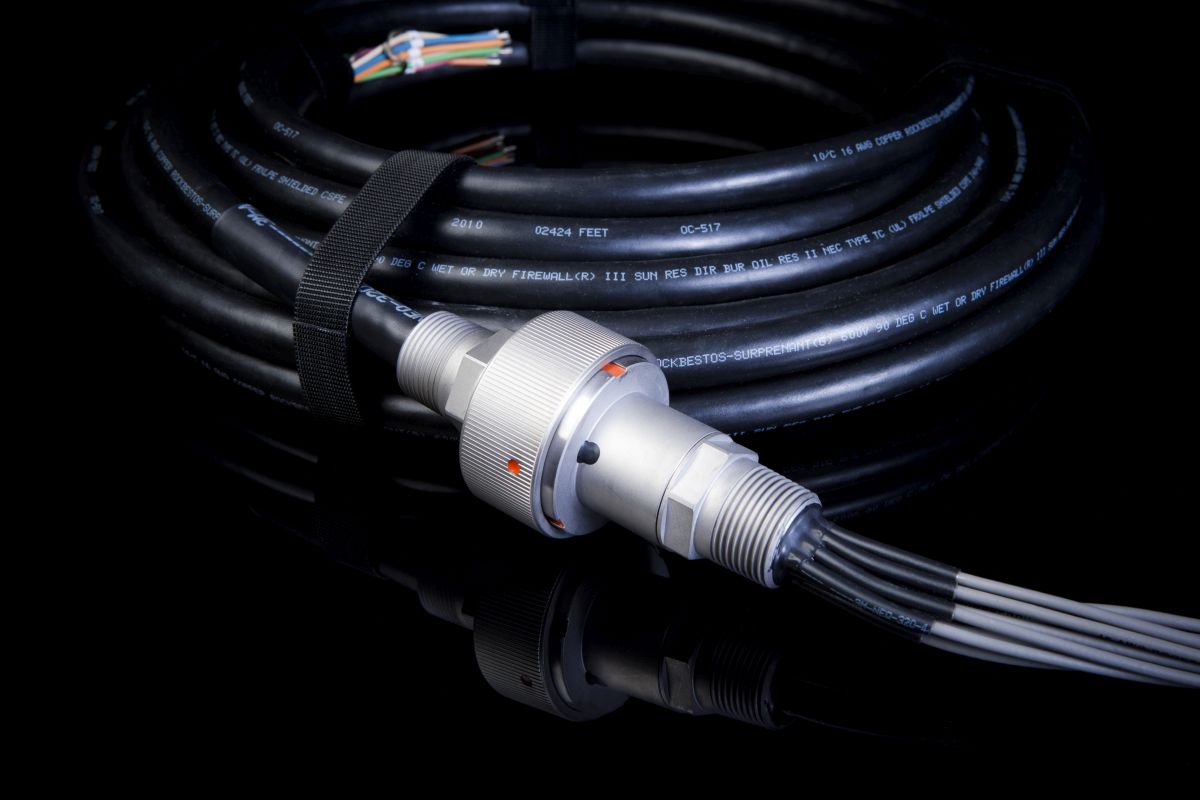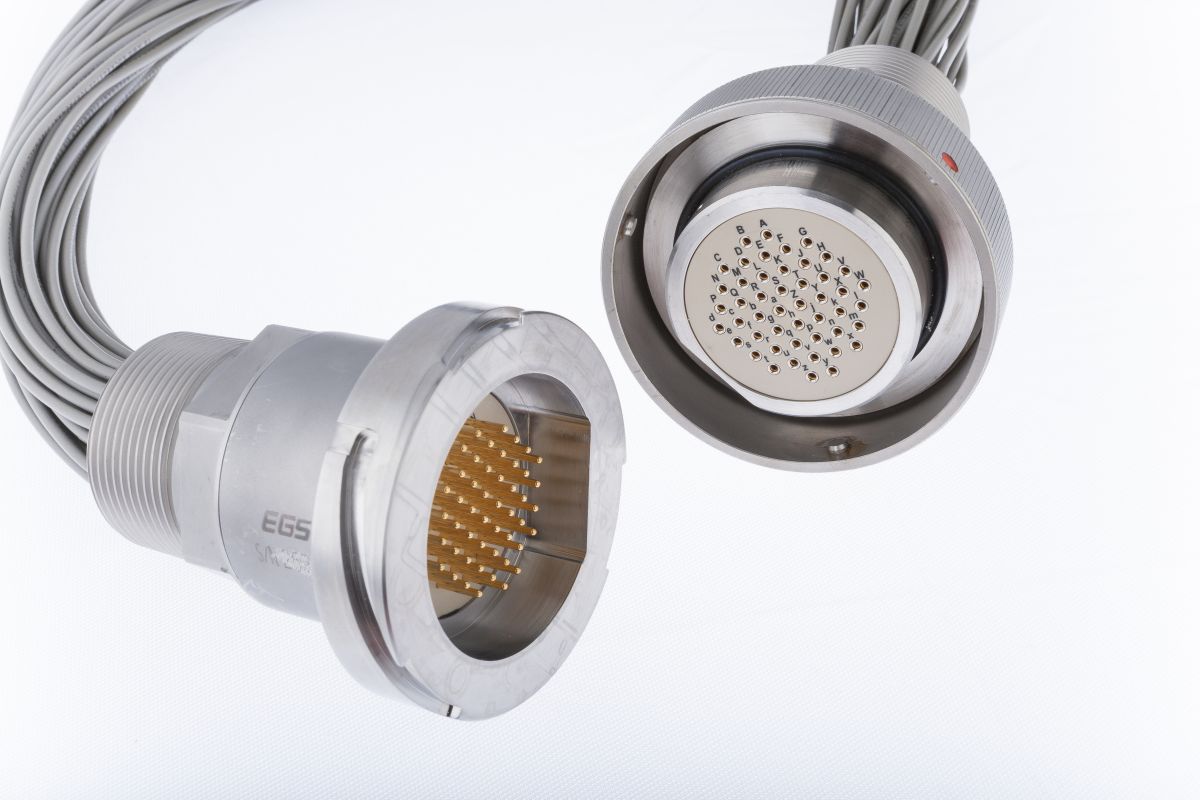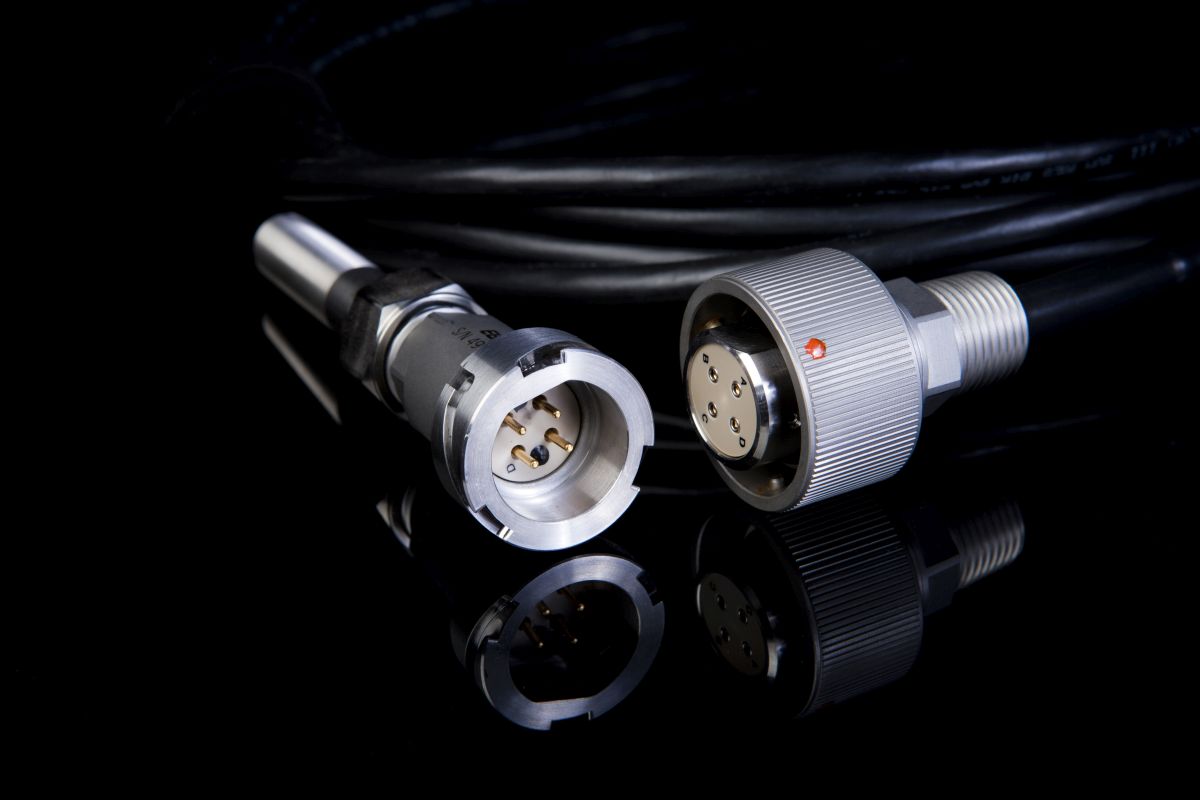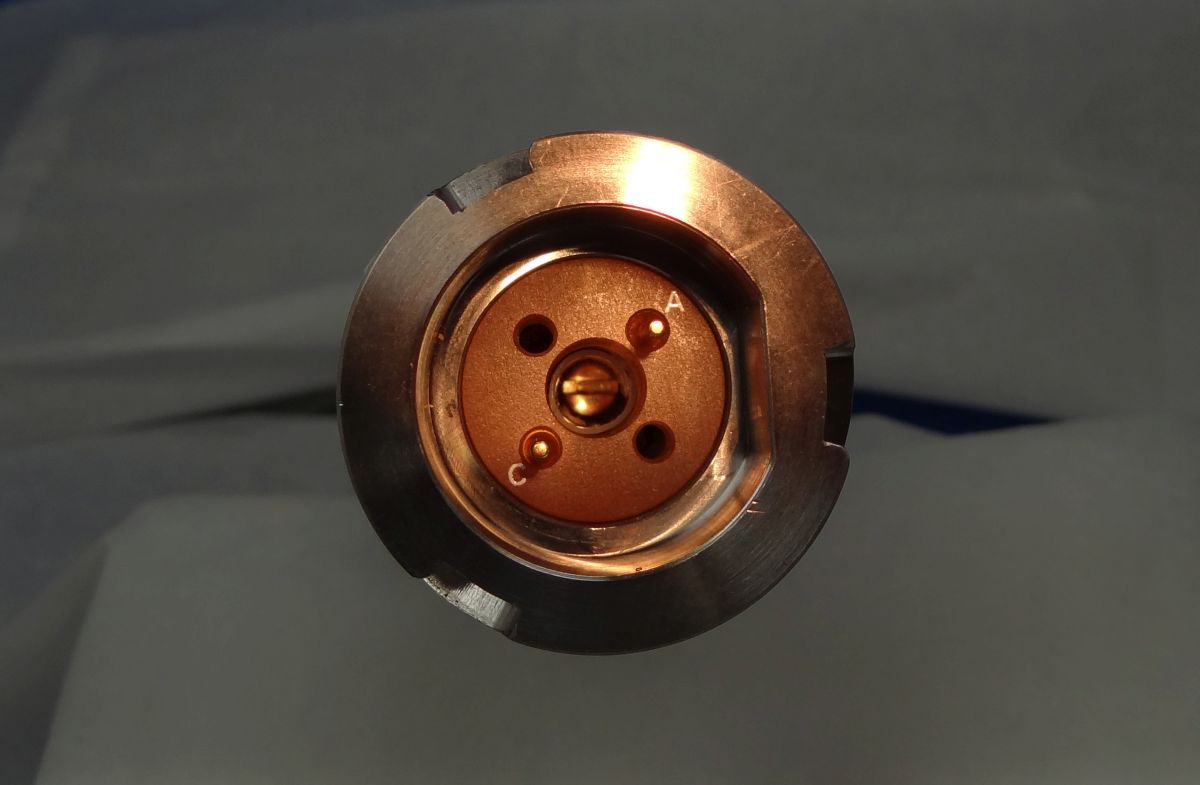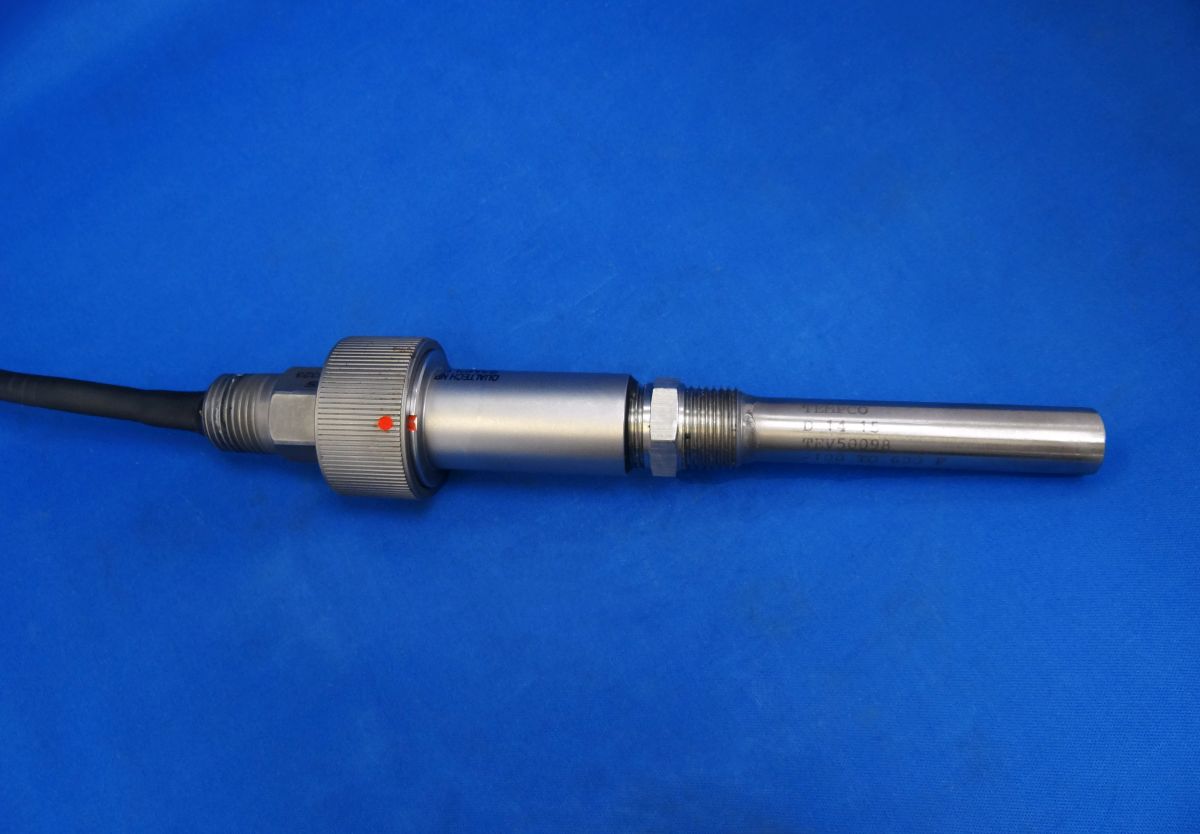EGS Electrical Connectors
HOME | BRANDS | Qualtech NP | Electrical Interconnection Products | EGS Electrical Connectors
EGS Electrical Connectors
Curtiss-Wright Nuclear supplies safety-related and environmentally qualified electrical interconnection products, known under the brand name EGS. Manufactured in Middleburg Heights, Ohio, all EGS electrical devices are qualified by test for the harshest conditions, inside and outside containment areas, in PWR, BWR, and CANDU reactors. EGS is comprised of a broad range of products, from Class-1E compact splices up to reactor cable assemblies, and has become internationally known as a world leader in the supply of safety-related connection devices.
All EGS products are manufactured in accordance with ANSI N45.2, 10CFR50 Appendix B, and 10CFR21, in addition to being NQA-1, NUPIC, and NIAC audited.
.
.
EGS BLUEBOOT
The EGS BLUEBOOT connector is a single conductor quick-disconnect for non-safety related applications. Similar to the safety-related GRAYBOOT, it is an elastomer body/sealed connector whose performance is equivalent to heat shrink tubing or uninterrupted wire with regard to insulation resistance and leakage current. This connector typically features plated contacts crimped to the user’s field wiring and inserted into the connector body. Sealing is maintained at the wire to body interface and at the connector halves by the elastomer-to-elastomer seal. No maintenance is required.
For ordering information, please see the EGS Non-safety Related BLUEBOOT Selection Guide below.
- Quick connect/disconnect (push/pull)
- Easy installation
- Small size for conduit and instrument enclosure use
- Eliminates splicing problems
- Utilizes existing pigtails/field wire
- No maintenance
- High insulation resistance
- Low current leakage
- Better performance than most splices, terminal blocks, and connectors
- Quick installation tools available
- Allows for easy transition from large wire to small wire
- Temperature range: -193°F to 199°F (-125°C to 93ºC)
- Blue cosmetic visually distinguishes from the qualified EGS GRAYBOOT
- Cover clamps not necessary
EGS GRAYBOOT
The EGS GRAYBOOT connector is a single conductor, quick-disconnect, elastomer body, sealed connector whose performance in accident conditions is equivalent to nuclear grade heat shrink tubing or uninterrupted nuclear grade wire with regard to insulation resistance and leakage current. This connector typically features plated contacts crimped to the user’s field wiring and inserted into the connector body. The connector halves are then secured to the wire by a special crimp-clamp. Sealing is maintained at the wire to body interface by the clamp and at the connector halves by the elastomer-to-elastomer seal. No maintenance is required.
For ordering information, please see the EGS GRAYBOOT Connector Series Selection Guide below.
- Quick connect/disconnect (push/pull
- Easy installation
- Small size for conduit and instrument enclosure use
- Eliminates splicing problems
- EQ tested including submergence
- Utilizes existing pigtails/field wire
- Anti-tamper clamps available
- No maintenance
- High insulation resistance during LOCA
- Low current leakage for instrument sizes
- 600V rating, up to 85 amps
- ALARA savings over repetitive splicing
- Better performance than most splices, terminal blocks and connectors
- Quick installation tools available
- Allows for easy transition from large wire to small wire
- Continuous Use Temperature 257°F (125°C)
- Qualified life: 40 years at 133°F (56°C)
- Radiation: 2E8 rads gamma
- Seismic: 7.0g ZPA
- LOCA Tested: 435°F (223°C) and 77 psig (632.2 kPa)
- Accident Peaks
- Submergence: 30 days at 200/180°F (93/82°C) and 15/5 psig (204.8/135.8 kPa) in chemical spray solution
- ANSI N45.2
- 10CFR50/Appendix B
- 10CFR21
- NQA-1
- CSA registered
- IEEE 323-1974/1983
- IEEE 344-1975/1987
- IEEE 383-1974
- IEEE 572-1985
- 10CFR50.49
EGS GRAYBOOT “A”
The EGS GRAYBOOT “A” connector is a single conductor, quick-disconnect, elastomer body, sealed connector whose performance is equivalent to nuclear grade heat shrink tubing or uninterrupted nuclear grade wire with regard to insulation resistance and leakage current. This connector features gold or silver plated contacts crimped to the user’s field wiring and inserted into the connector body. The connector halves are then secured to the wire by a special crimp-clamp. Sealing is maintained at the wire to body interface by the clamp and at the connector halves by the elastomer-to-elastomer seal. No maintenance is required.
The GRAYBOOT “A” is an improved design over the original GRAYBOOT (extended use ranges, optional wire clamps for GB-1A). The GB-1A connectors are interchangeable with the GB-1 connectors.
For ordering information, please see the EGS GRAYBOOT “A” Connector Series Selection Guide below.
- Quick connect/disconnect (push/pull)
- Easy installation
- Small size for conduit and instrument enclosure use
- Eliminates splicing problems
- EQ tested including submergence
- Utilizes existing pigtails/field wire
- Anti-tamper clamps available
- No maintenance
- High insulation resistance during LOCA
- Low current leakage for instrument sizes
- 600V rating, up to 46 amps (1000V outside containment)
- ALARA savings over repetitive splicing
- Better performance than most splices, terminal blocks and connectors
- Quick installation tools available
- Allows for easy transition from large wire to small wire
- Continuous Use Temperature 257°F (125°C)
- Qualification Levels
- Qualified life: 40 years at 133°F (56°C)
- Radiation: 2E8 rads gamma
- Seismic: 7.0g ZPA
- LOCA Tested: 435°F (223°C) and 77 psig (632.2 kPa)
- Accident Peaks
- Submergence: 30 days at 200/180°F (93/82°C) and 15/5 psig (204.8/135.8 kPa) in chemical spray solution
- ANSI N45.2
- 10CFR50/Appendix B
- 10CFR21
- NQA-1
- CSA registered
- IEEE 323-1974/1983
- IEEE 344-1975/1987
- IEEE 572-1985
- 10CFR50.49
EGS Hard Line Connector
The EGS Hard Line Connector (HLC) is a two connector, screw together, quick disconnect sealed connector whose performance in accident conditions is equivalent to an uninterrupted, nuclear grade, mineral insulated (MI) cable or other existing connectors for core exit thermocouples. Unlike other connectors of similar type, it may be installed by plant personnel with minimal training. This connector has a stainless steel body and a unique design feature with which the user’s field wiring is simply pushed into the contacts, requiring no crimping.
Installation training classes are available.
- Quick connect/disconnect (push/pull)
- Easy installation
- Utilizes existing MI cable
- Push-in contacts (no crimping)
- Low maintenance
- Rugged construction
- Equivalent performance to high cost connectors
- Installation kits available
- Temperature rating 125°C (257°F)
- Qualified life 33.58 years at 170°F (76.67°C)
- Radiation: 2.707E7 rads gamma
- Seismically tested to15g peak and 6.0g ZPA
- LOCA: tested to 361°F (182.78°C) and 149 psig (1128.7 kPa)
- LOCA Radiation: 1.550E8 rads gamma
- Chemical spray solution for 24 hours at 250°F (121.11°C) SAT
- Supplied under EGS Nuclear QA
- Program in accordance with ANSI N45.2, 10CFR50/Appendix B, 10CFR21 and NQA-1
- IEEE 323-1974/1983
- IEEE 344-1975/1987
- IEEE 572-1985
- 10CFR50.49
EGS Quick Disconnect
A lightweight, easy-to-install design that prevents moisture and/or liquids from penetrating into instrument housings or junction boxes from the attaching conduit. The EGS Quick Disconnect Connector (QDC) comes in the following styles:
Bayonet Style - available in sizes 3/8”, 1/2”, 3/4”, and 1-1/2”
A true quick-disconnect device that can be locked and unlocked by a simple twist of the hand. The bayonet style features a visual locking indicator for ease of verification.
Hex Nut Style - available in sizes 1/2”, 3/4”, and 1-1/2”
An optional style designed especially for use in extreme temperature environments since it can use a metal O-ring.
- Easy installation/assembly
- Multi-conductor capability
- Small and lightweight
- No special tools or pre-assembly required
- No maintenance, except for periodic O-ring replacement
- Easy interface with device and conduit
- Used on variety of devices such as solenoid valves, transmitters, RTDs, TCs, pressure/limit/level/position switches, MOVs, motors, etc.
- Compatible with ALARA considerations
- Direct replacement for the Rosemount 353C conduit seal
- Qualified life: 40 years at 150°F (62.6°C)
- Radiation: tested to 2.5E8 rads gamma
- Vibration Aging: 0.75g, 90 minutes per axis
- Resonance Frequency: >200 Hz
- Seismic: tested to 8.3g ZPA (SSE)
- Supplemental Seismic: 20g per static load
- Thermal Cycling: 40 cycles at ΔT=55°F
- Accident Peaks: 435°F (223°C), 77psig (632.2 kPa), chemical spray, 100% RH
- Post-accident Aging: equivalent to 1 year at 200°F (93°C)
- 10CFR50.49
- IEEE 572-1985
- IEEE 323-1974/1983
- IEEE 344-1987
- IEEE 382-1980
- ANSI N45.2
- 10CFR50/Appendix B
- CSA Registered
EGS Quick Disconnect Gen. 3
The EGS Generation 3 Quick Disconnect Connector (QDC) is an improved version of the current QDC (Generation 1). The Generation 3 QDC has increased total integrated radiation dose, applied thermal aging for greater than 1,000 hours, attained higher LOCA temperature/pressure, attained greater MSLB temperature and included submergence during LOCA design basis accidents.
The Generation 3 QDC is the same as the original QDC (Generation 1 QDC) except for the following design changes:
- Elastomer seals have been installed in the QDC backshell tenhance the sealing capabilities of the potting seal.
- The wave spring force has been reduced tallow easier closure and opening of the bayonet ring.
- The wire/cable strain relief on the QDC socket side (field side or plug side) has been enhanced to provide a more robust strain relief.
- The setscrew material has been changed from alloy steel to stainless steel and the sealant is epoxy.
- A two-piece housing, connector head and backshell, has been added tallow alternate backshell configurations and provide flexibility in matching installation geometries.
- Epoxy Types 7 and 8 provide sealants with higher temperature ratings.
- PEEK insulators provide improved resistance to temperature and radiation effects.
- Vibration Aging: .025" double amplitude, <0.75g, 5-200-5 Hz
- Thermal Cycling: 10 cycles, 30°C-121°C-30°C
- Cycle Aging: 160 connection cycles (not a limit)
- Thermal Aging: 1227.55 hours at 126.6°C, QL = 60 years at 144°F (62.22°C)
- Normal Radiation: 3.15E7 rads-air (315 KGy-air) gamma
- Thermal Cycling: 10 cycles, 30°C-121°C-30°C
- Seismic Qualification:
- RIM Sine Sweep OBE: 10g, 2-100-2 Hz;
- RIM Sine Beat SSE: >10g, 2-64 Hz
- RMF Triaxial SSE: ZPA = 7g
For more Qualification Levels on the EGS Quick Disconnect Connector Generation 3, please see technical document below.
- 10CFR50.49
- IEEE 572-1985
- IEEE 323-1974/1983
- IEEE 344-1987
- IEEE 382-1980
- ANSI N45.2
- 10CFR50/Appendix B
- CSA Registered
EGS Temperature Switch
The EGS Temperature Switch units are strut-and-tube type thermoswitches comprised of two basic parts:
- The outer shell made of a high expanding metal, and
- The strut assembly made of low-expanding metal.
This electromechanical switch comes with integral Quick Disconnect Connector (QDC) for easy installation/removal.
- Electrical ratings:
- 10A at 120 VAC
- 5A at 240 VAC
- 2A at 120 VDC
- Adjustable temperature range from -100°F t600°F (-73°C t316°C)
- Available in normally open (N.O.) or normally closed (N.C.) configurations.
- Switches close on temperature rise or open on temperature rise.
- 20' field cable on socket side (standard)
- Electrical components hermetically sealed by disconnect assembly
- Mounting base available
- Direct replacement temperature switches for Models 17002-40 and 17023-6 (previously supplied by Fenwal, Inc.) and EGS models 01-170020-090 (N.C.) and 01-170230-090 (N.O.).
- Accuracy: Set point +/- 2%
- Qualified Life: 40 years at 135˚F (57˚C)
- Seismic:
- Horizontal 15.0g peak, 6.5g ZPA at 5.0% damping
- Vertical 15.0g peak, 6.5g ZPA at 5.0% damping
- Radiation: 6.35E7 rads gamma
- Cycling: 2200 operational cycles under full-rated load
- Accident Peaks: 355°F (179°C)
- ASME
- ANSI N45.2
- 10CFR50/Appendix B
- 10CFR21
- NQA-1
- IEEE 323-1974/1983/2003
- IEEE 344-1975/1987/2004
To request for more information click here

